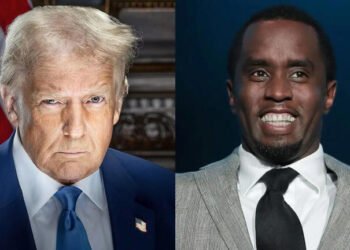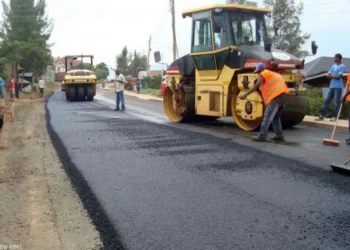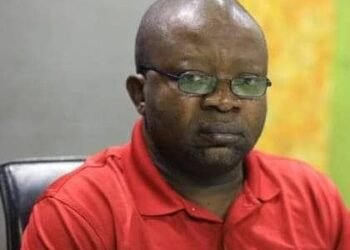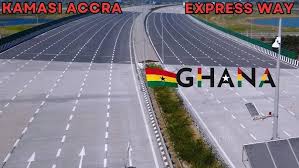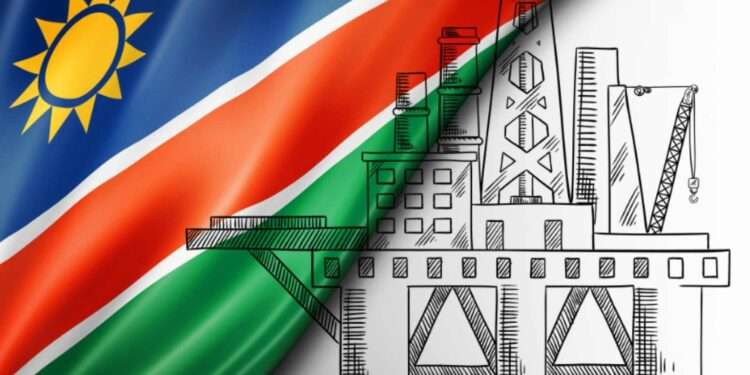President of France, Emmanuel Macron has announced a plan to send “reassurance forces” from “several European countries” to Ukraine after a peace deal is reached in the war with Russia.
He told reporters during a press conference following a high-stakes “Coalition of the Willing” summit for Ukraine in Paris on Thursday, that these forces would “act as a deterrent against potential Russian aggression.”
The meeting in Paris came amid intensifying efforts to broker a ceasefire between Russia and Ukraine.
The meeting comes days after the US said that it signed separate agreements with Moscow and Kyiv for a ceasefire in the Black Sea, but Russia presented conditions.
The summit comes at a crucial juncture in the more than three-year war, with intensifying diplomatic efforts to broker ceasefires amid pressure from US President Donald Trump to end the fighting.
Macron hosted the leaders of nearly 30 countries and NATO and European Union chiefs in Paris.
Among those who attended were British Prime Minister, Keir Starmer and Italy’s Giorgia Meloni, as well as the NATO Secretary-General and the Turkish Vice President.
Macron asserted that these reassurance forces are not intended to be peacekeeping forces as they will not replace the Ukrainian Armed Forces and will not be positioned on the frontlines but instead in “strategic towns” and bases.
He noted that this proposal “will be worked on by our military chiefs of staff” in the coming weeks to determine “the map and format” of these deployments. “These reassurance forces would in no way replace or reduce our efforts on NATO’s eastern flank but “would come in addition,” Macron added.
He emphasised that not all of Ukraine’s European allies would be represented in the force, with some states not “having the capacity” and some reluctant due to the “political context.”
The Franco-British delegation would begin talks over where such a force could be deployed.
Macron said that the summit agreed that he and UK Prime Minister, Keir Starmer would together “co-pilot” Europe’s “coalition of action for stable and durable peace.”
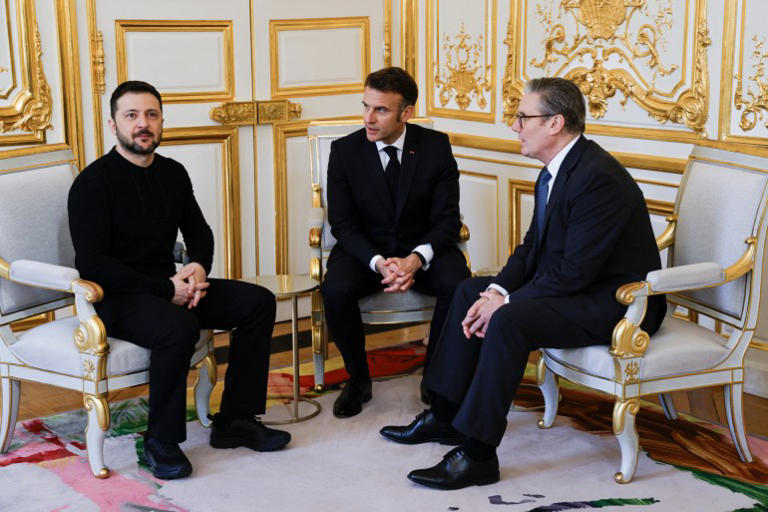
The UK-France delegation would also discuss the shape of “tomorrow’s Ukraine army,” Macron said, emphasising the importance of a “strong Ukrainian army, well-equipped for the day after.”
He noted that the delegation would analyse what sort of equipment Kyiv would need to dissuade any further Russian attacks.
Macron committed to a further 2 billion euros ($2.16bn) in French military support on Wednesday, including missiles, warplanes and air defence equipment.
Volodymyr Zelenskyy said that other partners could announce aid packages on Thursday.
Not All European Countries Agree On Force For Ukraine
Moreover, French President Emmanuel Macron revealed that Ukraine’s allies from across Europe did not all agree on the proposed deployment of troops in the country to back up an eventual peace deal with Russia and only some want to take part. “It is not unanimous but we do not need unanimity to achieve it,” he said.
The question of sending troops to Ukraine has created stark divisions among EU and NATO allies.
Italian Prime Minister Giorgia Meloni said that Italy will not participate in this plan, while her Polish counterpart Donald Tusk said last month, “We do not plan to send Polish soldiers to the territory of Ukraine.”
While Macron expressed his wish for US support in the case of a European deployment, he also stressed the need to prepare for a scenario where Europe has to independently.
READ ALSO: SC Tasked to Declare CJ’s Removal Process “Null And Void”


